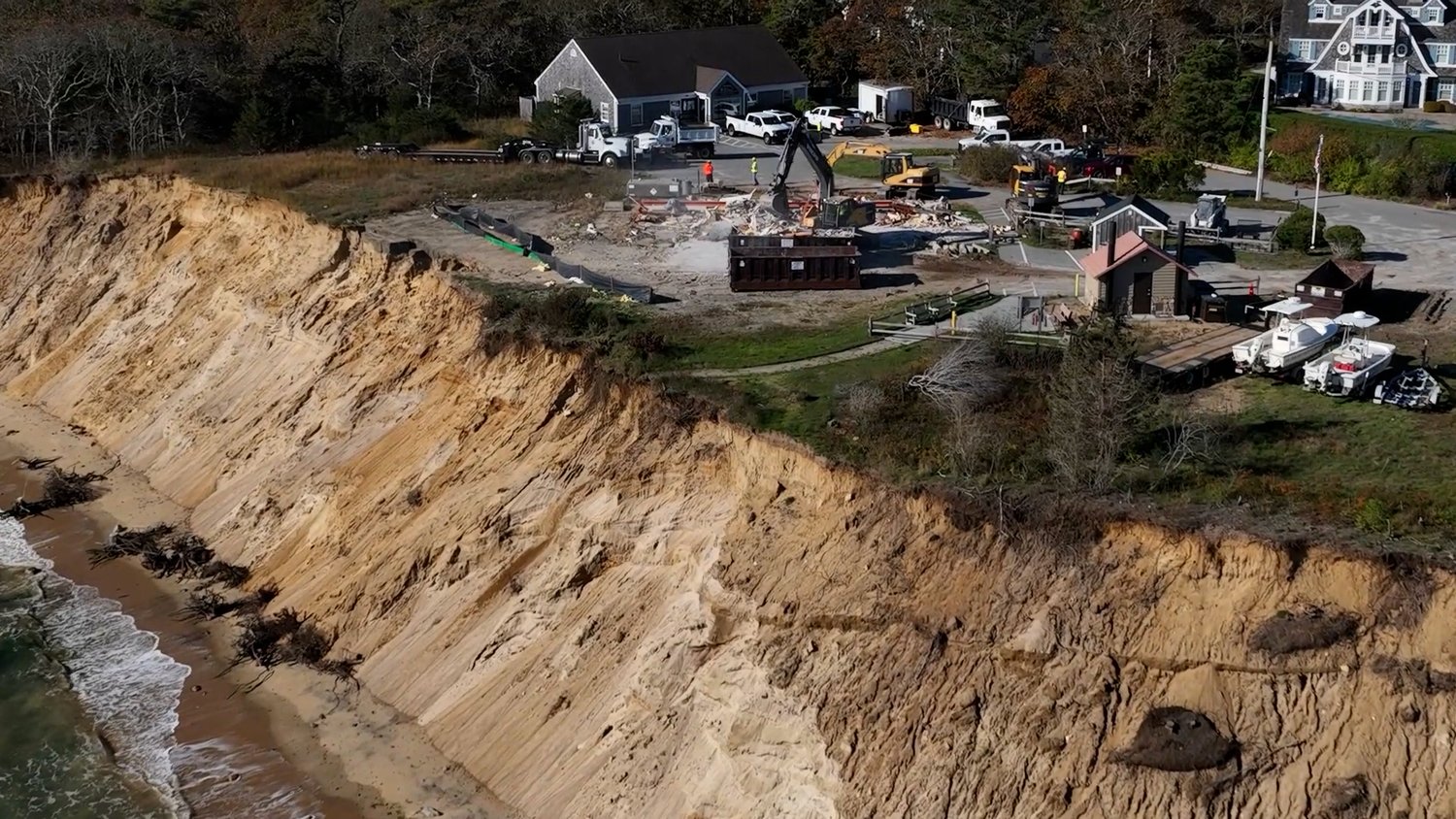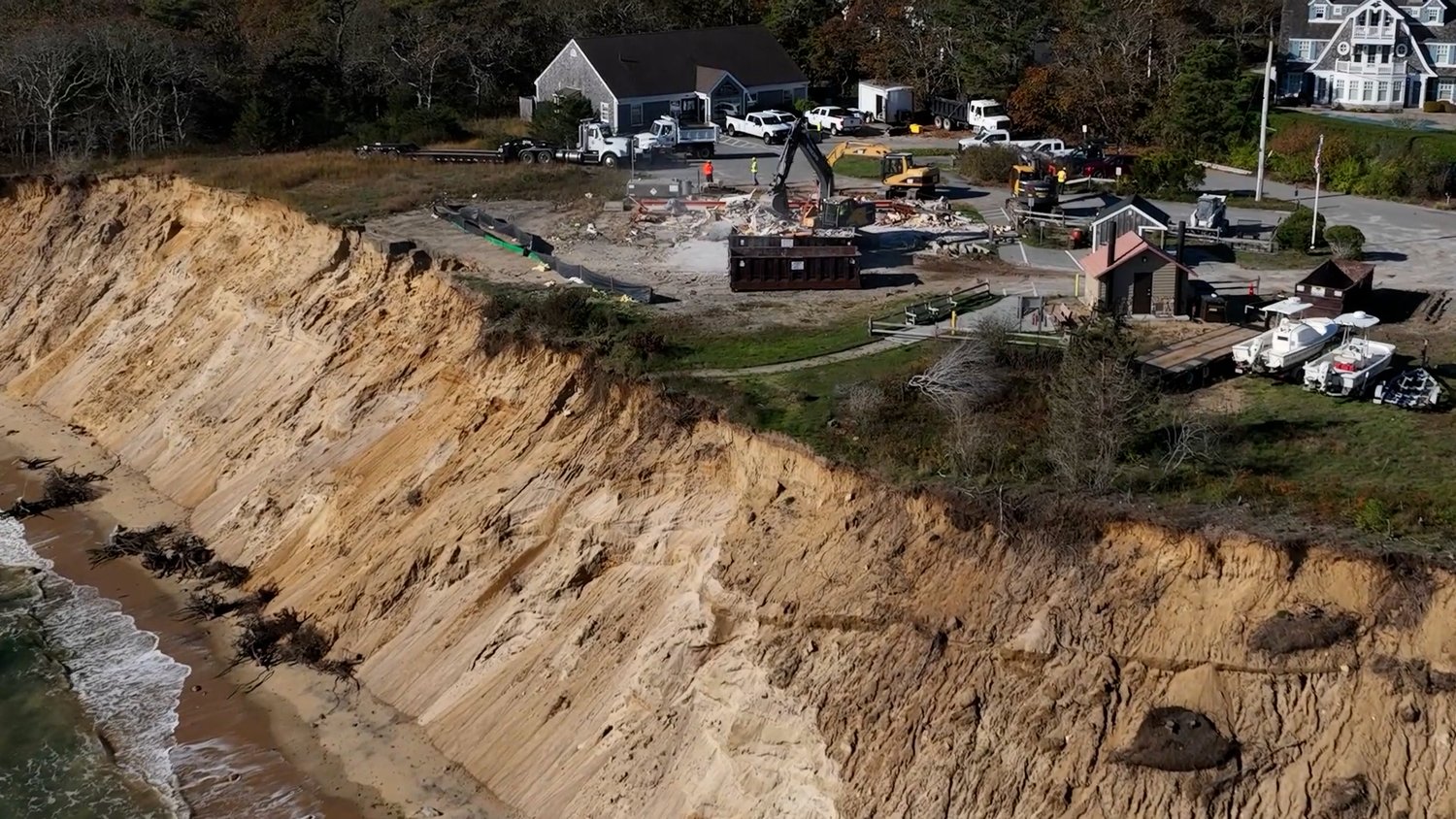The Monomoy National Wildlife Refuge, nestled along the picturesque shores of Cape Cod, is renowned for its natural beauty and its role in conserving the region’s delicate ecosystems. However, a looming threat, driven by climate change, now imperils this invaluable refuge. Erosion, accelerated by rising sea levels, is rapidly reshaping the landscape, challenging the very existence of the refuge’s headquarters in Chatham.
The story of this environmental crisis, as well as the broader impacts of climate change on Cape Cod, is vividly captured in the documentary “No Refuge: Cape Cod’s Coastal Crisis.” This compelling film, currently in production, delves into the heart of the challenges faced by Monomoy National Wildlife Refuge and the surrounding communities.
The alarming erosion along the Morris Island bluff has seen nearly 100 feet of coastline vanish. Two buildings have succumbed to the relentless tides, public access to the beach has been lost, and over 200 trees have been claimed by the encroaching sea. What remains at stake is the refuge’s primary building, housing critical offices essential for managing the 4,000-acre wilderness area that lies just offshore.
The root cause of this drastic erosion is not merely the natural shifting of sands but is exacerbated by the impacts of climate change. Scientists assert that sea-level rise, a direct consequence of our changing climate, is disrupting the traditional barrier beach cycle – a cycle previously governed by natural rhythms.
Please watch the documentary trailer and learn more about the issue here>>
The National Wildlife Refuge Association, an organization dedicated to the protection, promotion, and enhancement of the National Wildlife Refuge System, stands behind this project. We care deeply about Monomoy National Wildlife Refuge and the erosion problem it faces.


